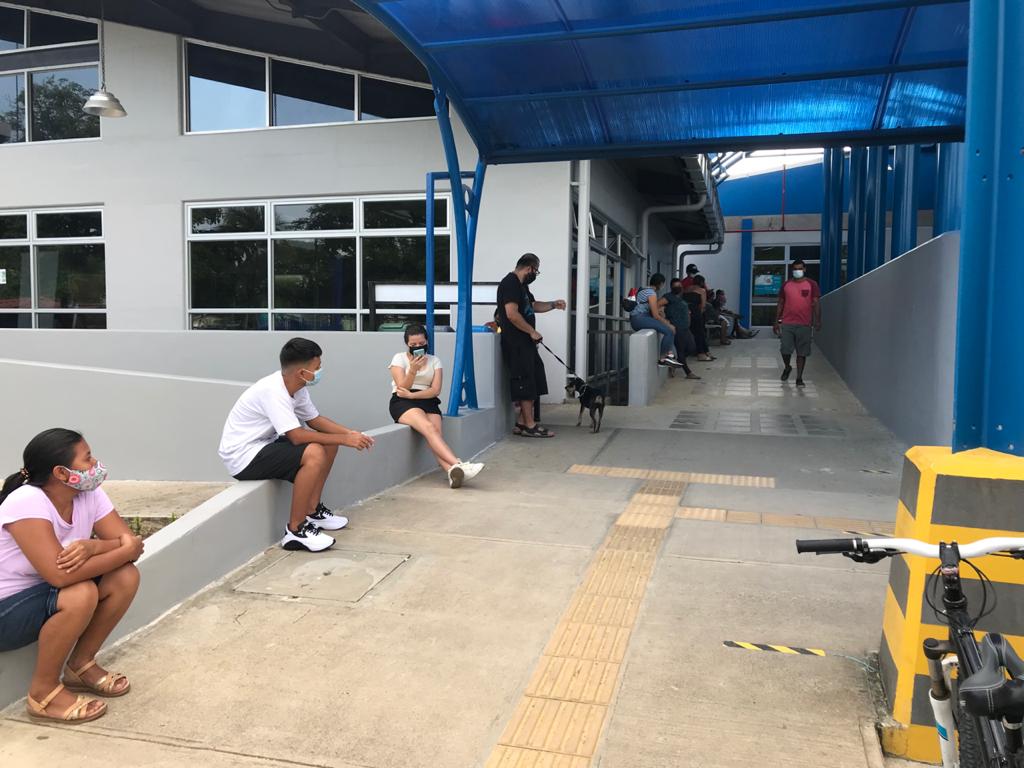
Costa Rica doesn’t have COVID-19 vaccines available to immunize people with an irregular migration status who live in the country, stated the Minister of Health, Daniel Salas, on July 20.
We’d like to have more vaccines for the contingent of people who don’t have a regular condition in the country, but it’s clear that it’s hard for us to reach,” Salas said when questioned on the subject during a conference related to the health crisis
In January of this year, a spokesman for the Ministry of Health told The Voice of Guanacaste that they wouldn’t vaccinate people in these migration categories because since they don’t have a regular status in the country, “they don’t have a clinical medical history” and therefore, doctors couldn’t administer medication without that information.
The minister stated that although in the future, he will consider working with institutions such as the United Nations (UN) and the Ministry of Foreign Affairs and Worship, they currently don’t have a plan to “prioritize” this migrant population during the vaccination campaign against the virus.
Meanwhile, no health area will vaccinate people who don’t present a valid form of Costa Rican identification (ID card, DIMEX, refugee application card or work permit) until the Ministry directed by Salas indicates otherwise.
The press department of the Costa Rican Social Security Fund (CCSS) stated that they will apply the same measure (of not immunizing) to everyone who presents their identification if it is expired and they can’t show proof that the document is being renewed.
On the other hand, the CCSS vaccination procedures manual indicates that people who don’t have identification or whose ID has expired, but who do have some condition of insurance from CCSS, will be able to gain access to the vaccination campaign as long as they are registered at an EBAIS and have their insurance number and some other identification document, such as a passport, at the time of vaccination.
The same manual indicates that in the case of someone elderly with an irregular immigration status, each health area will assess on an individual basis whether the person has “roots” in the country through the Integrated Family File System (SIFF- Sistema Integrado de Ficha Familiar). If the person has another way that makes it possible to verify that condition, it should be analyzed not only in the health center they go to, but also at the regional level.
Currently, immigrants with regular status or who are in the process of regularization have the right to receive the COVID-19 vaccine in Costa Rica. Those who are carrying out an immigration procedure in the country must present proof of the process at the time of their vaccination.
An Obstacle for Immigrants
The measures taken by the country towards migrants and vaccination are classified as “bad practices” that threaten the health of these groups, according to the United Nations International Organization for Migration (IOM).
According to the report “Migrant Inclusion in COVID-19 Vaccination Campaigns,” Costa Rica is part of a group of 53 United Nations member countries that take measures against certain categories of migrants living in their national territory.
The report states that requirements such as presenting a national identity document or a valid residency permit can undoubtedly be obstacles for certain categories of migrants and forcibly displaced people, already vulnerable since before the pandemic.
The IOM affirmed that “there’s still time to correct” bad practices and invites all countries to come together to work together and solve the problem.




Comments